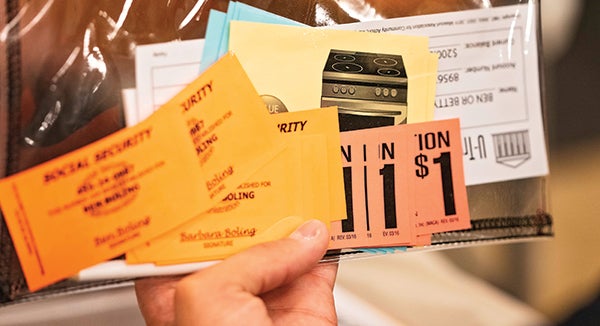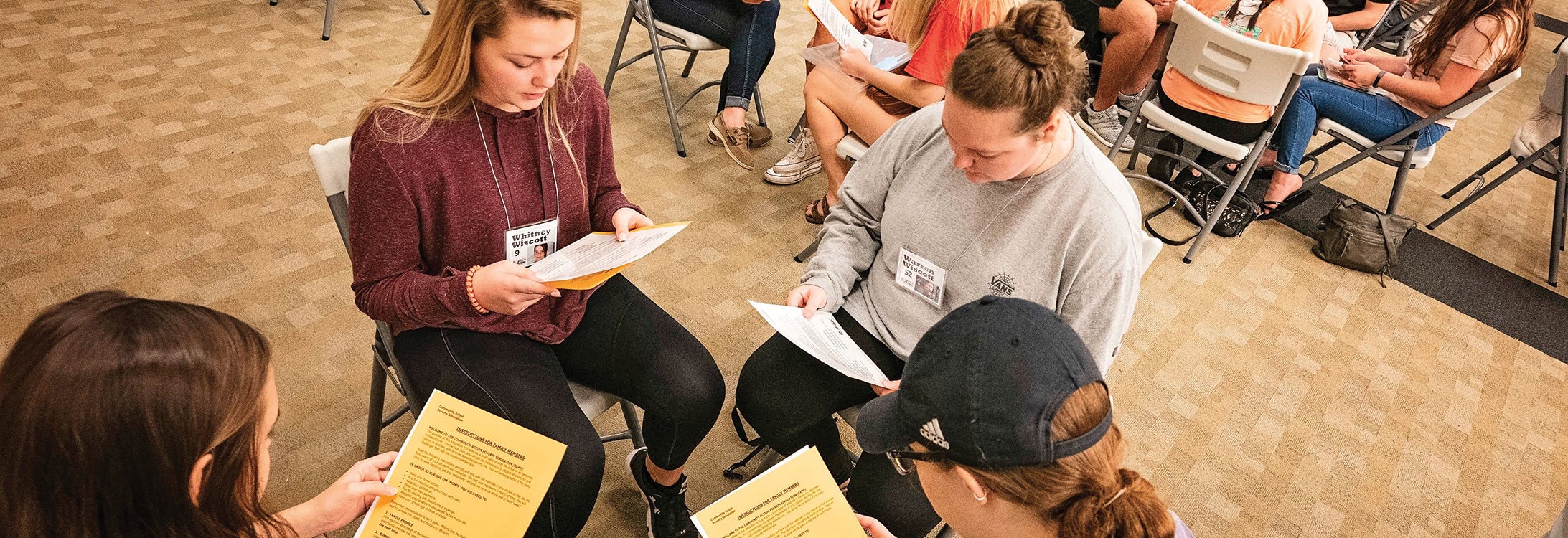Poverty simulation builds understanding, empathy
More than 50 ECU undergraduate students participated in a poverty simulation Feb. 8 with the goal of increasing their understanding of the day-to-day realities faced by people with low incomes.
The simulation helps participants, who’ll likely serve families with low incomes, learn what to look for. Additionally, organizer Tamra Church, health education and promotion instructor, said she hopes they’ll be “motivated to become involved in activities that help reduce poverty in this country.”
The students, public health/pre-health or social work majors, spent the afternoon grouped in families, experiencing scenarios based on real experiences. A ballroom at the East Carolina Heart Institute became “Realville,” with chairs grouped into family units. Tables lining the walls became a bank, a school and a pawn shop. And a local “criminal element” roamed the pathways, avoiding police patrols.
Some of the families were dealing with unemployment, incarceration and/or teen pregnancy, while others were caring for elderly relatives, grandchildren or younger siblings. Several were living in a shelter.

Tables lining the walls became a bank, a school and a pawn shop.
During 15-minute-long “weeks,” they went to school or work, searched for employment and housing, paid bills and sought needed services, from health care and child care to food shopping and social services at stations staffed by nearly two dozen community volunteers.
Junior Hannah Allen and seniors Courtney Kirchner and Monica Mayefskie, all public health/ pre-health majors, along with junior social work major Elizabeth Smith made up the “Wescott” family, a married couple in their 50s caring for their two young grandchildren.
Their monthly income from Winona Wescott’s full-time job as a cashier and Warren Wescott’s disability bene t falls $25 short of their basic expenses. That’s before covering transportation costs, buying glasses for their granddaughter and paying fees for school projects.
And it’s before something goes wrong. For example, one month the Westcotts ended up paying nearly double their mortgage – and still owed money – due to an unscrupulous collector demanding receipts of what they had already paid.
Difficulty with the mortgage payment meant there was no money for food one week. “I lied and told my teacher that I had an apple for breakfast because I didn’t want us to get taken away,” said Mayefskie in her role as the Wescott’s 9-year-old granddaughter. School project fees also went unpaid. “It was embarrassing that we were the only ones who didn’t have our two dollars,” said Kirchner as their 7-year-old grandson.
“This is stressing me out. They don’t tell you all the rules. There’s a lot that I don’t know the best way to get done. I’m so frustrated,” said Smith.
“Poverty doesn’t always look like what you think it looks like,” said simulation volunteer Cathy Dixon of the Pitt County Health Department.
